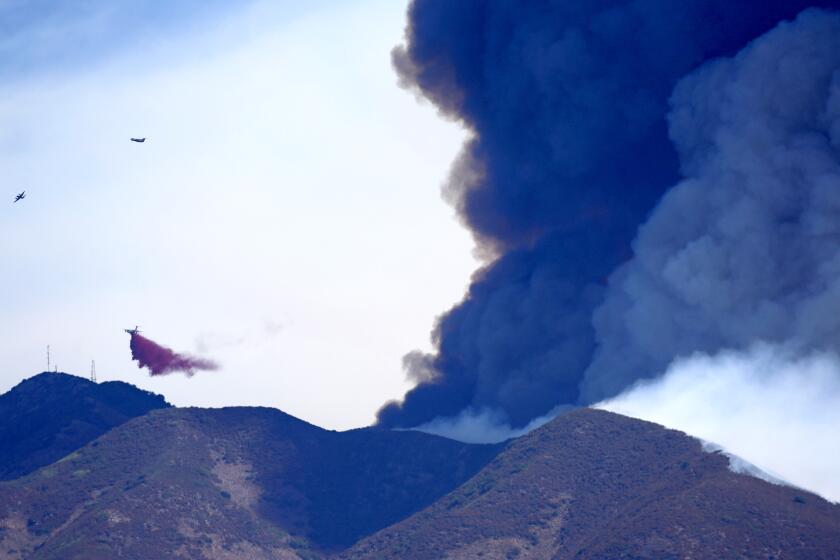Readers React: Farmworkers’ plight shows American complicity in illegal immigration
To the editor: We are unable to pass comprehensive immigration reform that is fair and humane because immigrants are unfairly maligned as having the worst of intentions. Fearful, we demonstrate in our communities against immigrants in hateful ways. (“U.S. firms, consumers can’t ignore abuses against Mexican farmworkers,” Editorial, Dec. 8)
Your editorial describing how major U.S. companies import produce from Mexico that is treated with great care while the desperately poor laborers who pick that produce are forced to work and live in subhuman conditions not only upset me, but it also underlined for me how we are complicit in attracting undocumented workers to our country. We help create dangerous conditions in Mexico through our demand for illegal drugs, and then we help create a permanent poor class by partnering with companies that subjugate and poorly pay workers there.
I hope we will stop vilifying immigrants who are trying to escape horrible conditions that we, in part, have created.
Joan Horn, Carlsbad
..
To the editor: In judging the appalling conditions in Mexico, we should also consider that what seems intolerable to us might be an improvement in the standard of living for the workers involved; otherwise the economic model would not be sustainable.
Large Mexican farms growing produce for export are inspected by the U.S. Department of Agriculture. Working and living on an export-certified farm means that the worker is not exposed to Giardia on a daily basis.
Life is tough on a factory farm — but life is even tougher back on your milpa, especially if your family has survived for nearly 500 years without being touched by Europeanizing influences. It is easier to find a job in Los Angeles not speaking English than it is to find a job in Mexico not speaking Spanish.
Where our eyes see exploitation, in the local context the factory farms are offering the bottom part of the Mexican working class an opportunity to move up in their lives.
Kim Stevens, San Pedro
The writer is a former U.S. Foreign Service officer in Mexico who helped facilitate USDA factory farm inspections.
Follow the Opinion section on Twitter @latimesopinion
More to Read
A cure for the common opinion
Get thought-provoking perspectives with our weekly newsletter.
You may occasionally receive promotional content from the Los Angeles Times.










